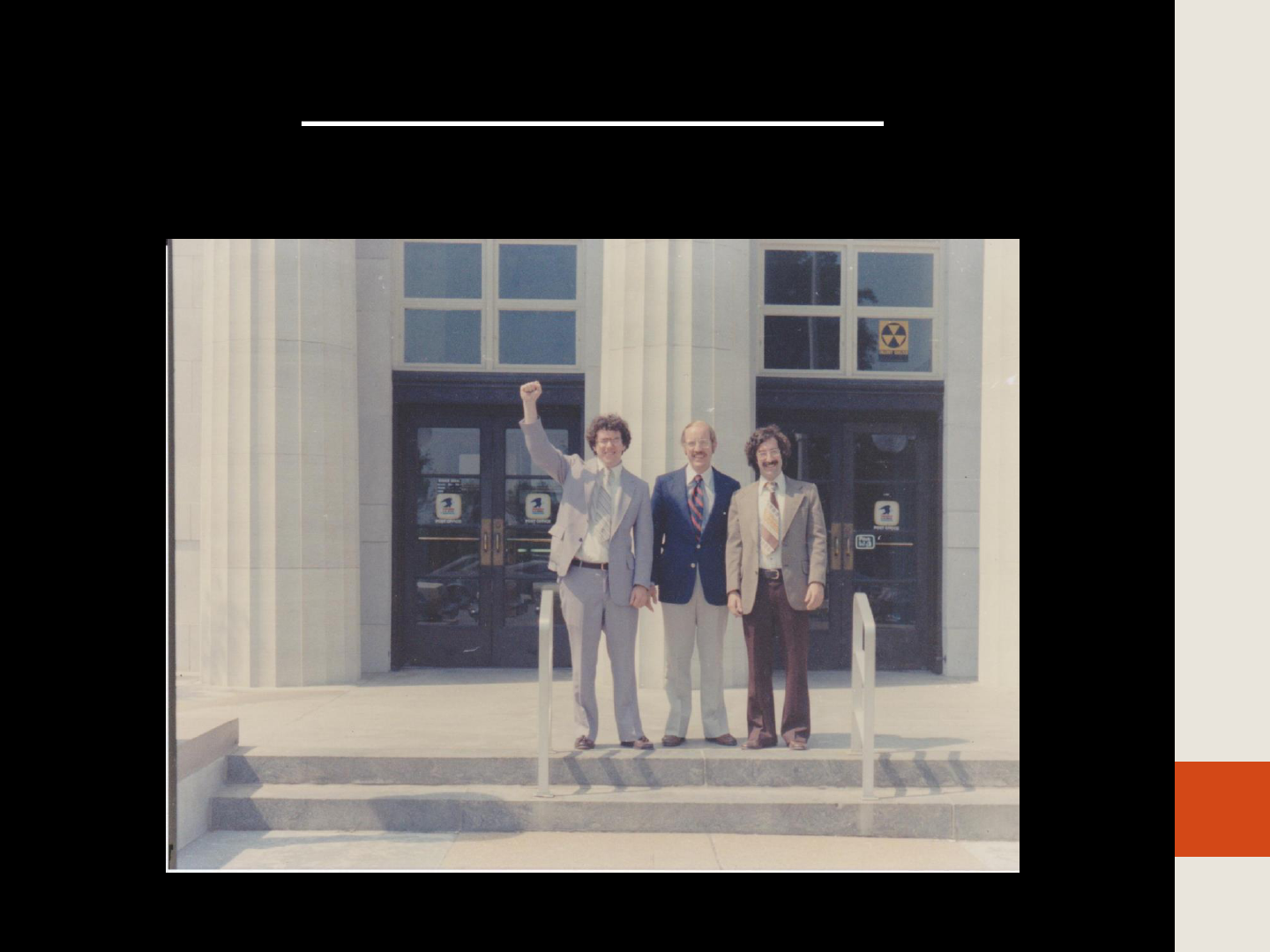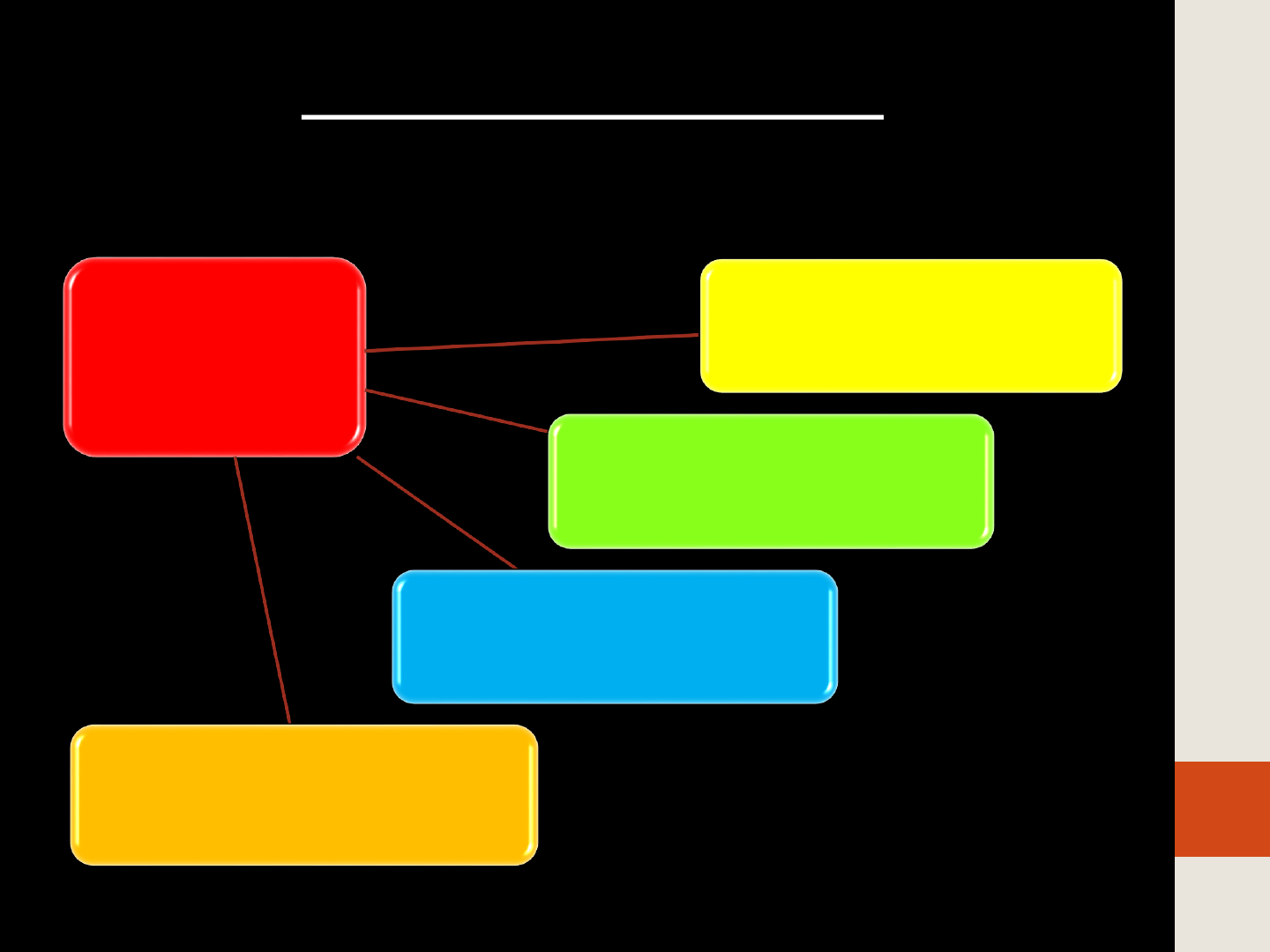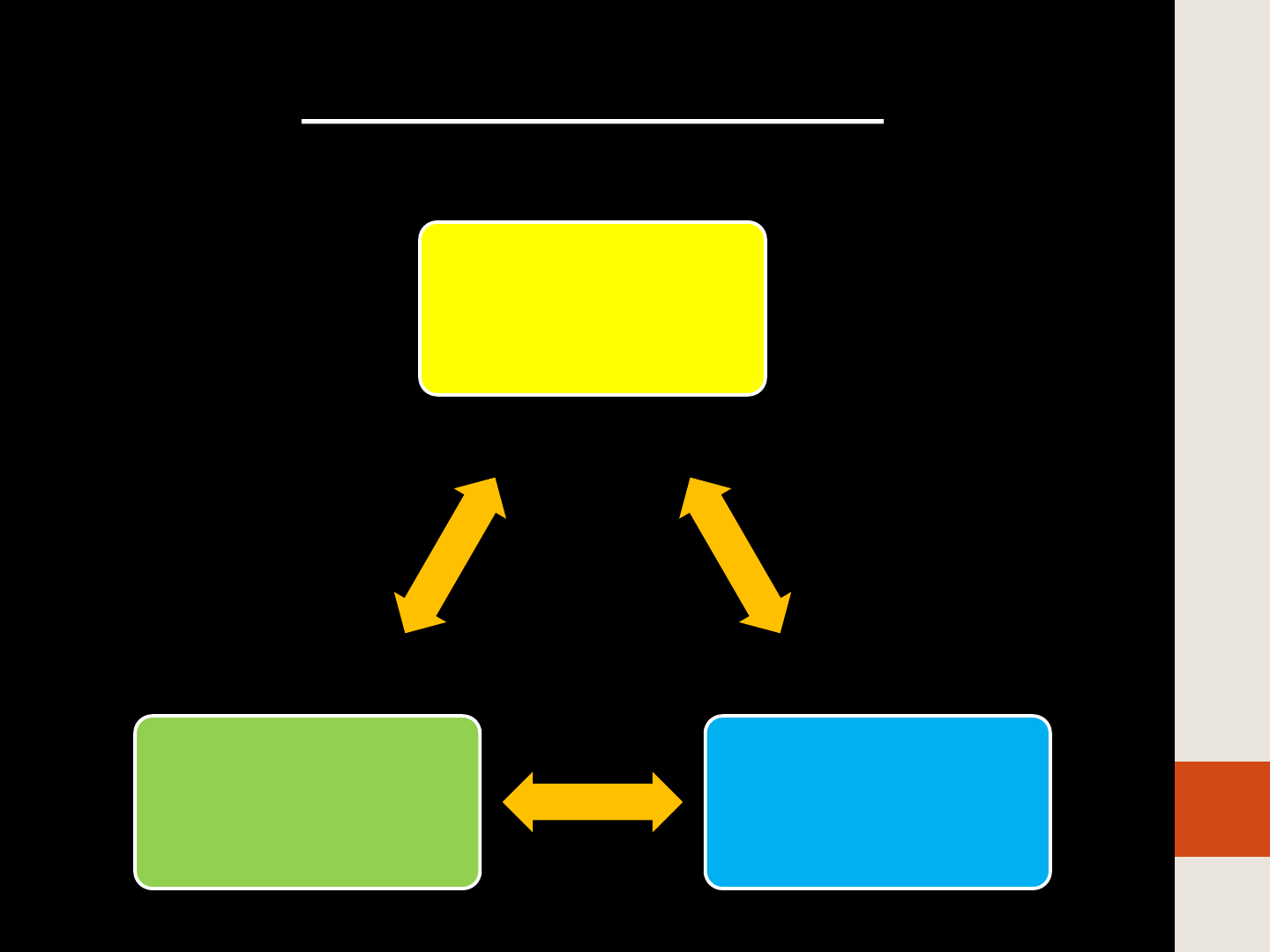
Carlsons on Evidence
EVIDENTIARY PRACTICE TIPS AND POINTERS
Important Applications and
Distinctions Under the Georgia and
Federal Rules of Evidence
34th Annual Medical Malpractice Liability Institute
FRIDAY • NOVEMBER 2, 2018
Ritz-Carlton,
Amelia Island, Florida
www.carlsononevidence.com

Carlsons on Evidence
Important Applications and Distinctions
Under the Georgia and Federal Rules of
Evidence
34th Annual Medical Malpractice Liability Institute
FRIDAY • NOVEMBER 2, 2018
Today’s Presentation
Speaker Introductions
www.carlsononevidence.com

Carlsons on Evidence
Speaker Introductions
• Presenters
• Ronald L. Carlson
• Fuller E. Callaway Professor Emeritus, University of Georgia
School of Law
• 15 books on evidence, trial practice and criminal procedure
• Article cited in Advisory Committee Notes of FRE’s
• Michael Scott Carlson
• Deputy Chief Assistant District Attorney, Cobb Judicial Circuit
• Judge, Georgia Court Martial Review Panel
• Successfully jury tried and Supreme Court argued murder
cases under Georgia’ New Evidence Code
www.carlsononevidence.com

Carlsons on Evidence
Eckerhart v. Hensley, No. 75-CV-87-C (W.D. Mo. Jan. 23, 1981)
• “…Also participating in plaintiffs' representation was
Professor Ronald Carlson of Washington University in St.
Louis, Missouri….but that organization requested his
participation in the litigation due to his expertise with
the Federal Rules of Evidence and his trial
experience…A close review of those records, his role in
the litigation, and the quality and nature of his work
product convinces the Court that the time claimed and
expended by Prof. Carlson is reasonable for a case of this
type. Defendants' contention that Prof. Carlson
represented a luxury on plaintiffs' trial team which
defendants should not have to pay for fails to
comprehend the importance and uniqueness of Prof.
Carlson's actual contribution to preparation and trial.”
www.carlsononevidence.com

Carlsons on Evidence
Eckerhart v. Hensley, No. 75-CV-87-C (W.D. Mo. Jan. 23, 1981)
www.carlsononevidence.com

Carlsons on Evidence
Important Applications and Distinctions
Under the Georgia and Federal Rules of
Evidence
34th Annual Medical Malpractice Liability Institute
FRIDAY • NOVEMBER 2, 2018
Today’s Program
Presentation and Materials
www.carlsononevidence.com

Carlsons on Evidence
Presentation and Materials
• Evidence Program Goals
1. Further Develop “Code Wide”
Approach
2. Underscore Fundamental
Principles of Interpretation
3. Analyze and Consider Specific
Applications
www.carlsononevidence.com

Carlsons on Evidence
Presentation and Materials
• Will use experience, scholarship, and mock
case scenarios as a vehicle to illustrate rules
and cases in context
• Consider objections
• Materials and discussion will feature New
GRE and FRE authority
• Where no new GA case available, focus
placed on relevant federal and related state
authority
• Using actual quotes from cases
• Please hold questions until presentation is
concluded
www.carlsononevidence.com

Carlson on Evidence
Presentation and Materials
• Remain in contact with lawyers and judges
for key areas of interest
• Slides and discussion will contain actual
decisions
• Sometimes only advance citations are
available
WATCH FOR RECENT OPINIONS
• A few slides may repeat—please follow
the action
www.carlsononevidence.com

Carlsons on Evidence
Presentation and Materials
• We should
encourage debate
over what
statues, rules and
cases “mean”
• We should never
argue over what
statutes, rules and
cases “say”
• Therefore we focus
on:
1. Using actual
quotations from
cases and language
from the statutes
2. Leaving the policy
determinations to
legislatures and
courts
3. “Content heavy”
presentations
www.carlsononevidence.com

Carlsons on Evidence
Important Applications and Distinctions
Under the Georgia and Federal Rules of
Evidence
34th Annual Medical Malpractice Liability Institute
FRIDAY • NOVEMBER 2, 2018
Georgia’s New Evidence Code
Fundamental Considerations
www.carlsononevidence.com

Carlsons on Evidence
Preamble; 24-1-1
• January 1, 2013
Georgia’s new
evidence code
goes into effect
• Numerous
issues remained
to be addressed
• Primary Concerns
What are
fundamental
changes?
What law would
apply to new
provisions?
What are the
guiding principles?
www.carlsononevidence.com

Carlsons on Evidence
Preamble; 24-1-1
• 3 Basic Types of GRE’s
• Federalized (vast majority)
• No prior Georgia authority but vast federal case law
• Hybrid but leaning federal
• No prior Georgia authority but vast federal case law
• Carried over from former code
• Prior Georgia authority may be conflicting and may
be impacted by adoption of other rules
• In the case of “double covered,” GASCT has
expressed a preference for federalized version
www.carlsononevidence.com

Carlsons on Evidence
Preamble; 24-1-1
• 24-1-1/100’s: GENERAL PROVISIONS
• 24-2-200’s: JUDICIAL NOTICE
• 24-3-3’s: PAROL EVIDENCE
• 24-4-400’s: RELEVANT EVIDENCE AND ITS LIMITS
• 24-5-500’s: PRIVILEGES
• 24-6-600’s: WITNESSES
• 24-7-700’s: OPINIONS AND EXPERT TESTIMONY
• 24-8-800’s: HEARSAY
• 24-9-900’s: AUTHENTICATION AND IDENTIFICATION
• 24-10-1000: BEST EVIDENCE RULE
www.carlsononevidence.com

Carlsons on Evidence
4 Scenarios for Georgia’s New Evidence Rules
New
Evidence
Rules
No Prior Statute
Prior Statute
Replaced
Prior Statute
Modified
Prior Statute
Repeated
www.carlsononevidence.com

Carlsons on Evidence
Important Applications and Distinctions
Under the Georgia and Federal Rules of
Evidence
34th Annual Medical Malpractice Liability Institute
FRIDAY • NOVEMBER 2, 2018
Georgia’s New Evidence Code
Philosophical Upgrades
www.carlsononevidence.com

Carlsons on Evidence
Preamble; 24-1-1; 24-4-401 to 403
• “Three rules [401, 402, and 403] provide a
backdrop for Georgia's new Evidence
Code…By standardizing rules concerning both
the presumptive admissibility of relevant
evidence and the judicial exclusion of certain
otherwise admissible evidence, Rules 401,
402, and 403 overlay the entire Evidence
Code, and are generally applicable to all
evidence that a party seeks to present.”
Chrysler Group LLC v. Walden, 303 Ga. 358
(2018)
www.carlsononevidence.com

Carlsons on Evidence
Preamble; 24-1-1; 24-4-401 to 403
• “…the Rules' pervasive bias in favor
of admitting logically relevant
evidence…The bias is sculpted into
the key trilogy of provisions, Federal
Rules of Evidence 401-03.”
• Edward J. Imwinkelried, Developing a Coherent
Theory of the Structure of Federal Rule of
Evidence 703, 47 Mercer L. Rev. 447, 473-74,
n.181 (Winter, 1996)
www.carlsononevidence.com

Carlsons on Evidence
Preamble; 24-1-1; 24-4-401 to 403
• 24-4-402
• All relevant evidence shall be admissible,
except as limited by constitutional
requirements or as otherwise provided by
law or by other rules, as prescribed
pursuant to constitutional or statutory
authority, applicable in the court in which
the matter is pending. Evidence which is
not relevant shall not be admissible.
www.carlsononevidence.com

Carlsons on Evidence
Preamble; 24-1-1; 24-4-401 to 403
• “Generally, ‘[a]ll
relevant
evidence shall
be admissible,’
OCGA § 24-4-
402.” Smith v.
State, 302 Ga.
717 (2017)
• “’All relevant
evidence shall be
admissible,’ unless
constitutional or
other legal authority
renders it
inadmissible.”
Redcedar, LLC v. CML-
GA Social Circle, LLC,
341 Ga. App. 110
(2017)
www.carlsononevidence.com

Carlsons on Evidence
Preamble; 24-1-1; 24-4-401 to 403
•“Properly construed, Rule
402 abolishes uncodified
exclusionary rules of
evidence.”
• Edward J. Imwinkelried, A Brief Defense of
the Supreme Court's Approach to the
Interpretation of the Federal Rules of
Evidence, 27 Ind. L. Rev. 267 (1993)
www.carlsononevidence.com

Carlsons on Evidence
Preamble; 24-1-1; 24-4-401 to 403
• “But the problem with Chrysler's
argument is twofold: First, the
‘longstanding common law rule’ on
party wealth does not apply
precisely because it is a longstanding
common law rule that has been
abrogated by Georgia's current
evidence statutes….” Chrysler Group
LLC v. Walden, 303 Ga. 358 (2018)
www.carlsononevidence.com

Carlsons on Evidence
Important Applications and Distinctions
Under the Georgia and Federal Rules of
Evidence
34th Annual Medical Malpractice Liability Institute
FRIDAY • NOVEMBER 2, 2018
Davis Violations
Persistent Use of Improper Authority
www.carlsononevidence.com

Carlsons on Evidence
Preamble; 24-1-1
• Opponent of evidence files a motion in
limine citing numerous new evidence rules
that were not present in Georgia’s prior
code. Proponent replies, focusing on prior
Georgia authority. Opponent posits that
old law deficient. Proponent responds: “I
don’t see what the big deal is all about.
Everybody I know has been using those
motions for years.”
www.carlsononevidence.com

Carlsons on Evidence
Preamble; 24-1-1
• “Where provisions of the
new Evidence Code are
borrowed from the
Federal Rules of
Evidence, we look to
decisions of the federal
appellate courts
construing and applying
the Federal Rules,
especially the decisions
of the United States
Supreme Court and the
Eleventh Circuit.” Kemp
v. State, 303 Ga. 385
(2018)
• Only “[w]here a
provision of the new
Evidence Code differs in
substance from the
counterpart federal rule,
as interpreted by federal
courts, … must [we]
correspondingly
presume that the
General Assembly meant
the Georgia provision to
be different.” Revere v.
State, 302 Ga. 44 (2017)
www.carlsononevidence.com

Carlsons on Evidence
Preamble; 24-1-1
• Modeling of New GRE’s
• General Provisions (1’s and 100’s): FRE based
• Judicial Notice (200’s): FRE based
• Parol Evidence Rule (300’s): Former GRE based
• Relevance (400’s): FRE based
• Privileges (500’s): Former GRE based
• Witnesses Generally (600’s): FRE based
• Expert Witnesses (700’s): FRE based (former GRE based for
criminal standard)
• Hearsay (800’s): FRE based
• Authentication (900’s): FRE based
• Best Evidence (1000’s): FRE based
www.carlsononevidence.com

Carlsons on Evidence
Preamble; 24-1-1
• Georgia Supreme Court’s Resolution
• Federalized:
• “…look to decisions of the federal appeals courts
construing and applying the Federal Rules,
especially the decisions of the Eleventh Circuit.”
• Former Georgia:
• “…they may rely on Georgia decisions under the
old Code.”
• Original Creation:
• “…the usual principles that inform our
consideration of statutory meaning.”
State v. Frost, 297 Ga. 296 (2015)
www.carlsononevidence.com

Carlsons on Evidence
Preamble; 24-1-1
• “Georgia lawyers do this Court no favors — and risk
obtaining reversible evidence rulings from trial courts
— when they fail to recognize that we are all living in a
new evidence world and are required to analyze and
apply the new law. It may be hard to comprehend that,
when it comes to trials and hearings held after January 1,
2013, the most pertinent precedent to cite on an
evidentiary issue may be a decades-old decision of the
Eleventh Circuit (or even the old Fifth Circuit), instead of
a week-old unanimous decision of this Court…We trust
that this shortcoming will not be repeated in future
cases coming to this Court.” Davis v. State, 299 Ga. 180
(2016)
www.carlsononevidence.com

Carlsons on Evidence
Preamble; 24-1-1
• “To the extent the widow argues that the
statements were admissible under the
‘necessity’ exception, she improperly
relies on decisions that applied the
former Evidence Code… Because the
hearing on the executor's motion for
summary judgment took place after
January 1, 2013, however, the provisions
of Georgia's new Evidence Code apply.”
• Rabun v. Rabun, 341 Ga. App. 878 (2017)
www.carlsononevidence.com

Carlsons on Evidence
Preamble; 24-1-1
• This preamble, though not codified, is a clear instruction
manual for courts trying to decipher what the new
Evidence Code purports to do and what precedent to
apply. Like any instructions, it is best to read them, and
they must be read in order. First, the General Assembly
stated that the primary aim of the new Code was to
"adopt the Federal Rules of Evidence" as "interpreted
by" federal appellate courts "as of January 1, 2013[.]
Second, if a conflict exists among the federal appellate
courts, we look to the "decisions of the 11th Circuit."
Third, courts are to look to the "substantive law of
evidence in Georgia as it existed on December 31,
2012," only when not displaced by the new code. ”State
v. Almanza, 2018 Ga. LEXIS 656 (October 9, 2018)
www.carlsononevidence.com

Carlsons on Evidence
Preamble; 24-1-1
• “[a]lthough the Court of Appeals
recognized the applicability of the new
Georgia Evidence Code, it overlooked
OCGA § 24-4-401's definition of ‘relevant
evidence’ and mistakenly applied a
definition applicable in cases tried prior
to the new Code's effective date.” State v.
Jones, 297 Ga. 156 (2015)
www.carlsononevidence.com

Carlsons on Evidence
Preamble; 24-1-1
• “This provision [Rule 707] was carried
forward from former OCGA § 24-9-67
of the old Evidence Code and does
not have any equivalent provision in
the federal rules, and thus it is
appropriate to rely on decisions under
the old Code.” Watson v. State, 303
Ga. 758 (2018)
www.carlsononevidence.com

Carlsons on Evidence
Preamble; 24-1-1
• This preamble, though not codified, is a clear instruction
manual for courts trying to decipher what the new
Evidence Code purports to do and what precedent to
apply. Like any instructions, it is best to read them, and
they must be read in order. First, the General Assembly
stated that the primary aim of the new Code was to
"adopt the Federal Rules of Evidence" as "interpreted
by" federal appellate courts "as of January 1, 2013[.]
Second, if a conflict exists among the federal appellate
courts, we look to the "decisions of the 11th Circuit."
Third, courts are to look to the "substantive law of
evidence in Georgia as it existed on December 31,
2012," only when not displaced by the new code. ”State
v. Almanza, 2018 Ga. LEXIS 656 (October 9, 2018)
www.carlsononevidence.com

Carlson on Evidence
Preamble; 24-1-1
• 2017 Article
• Davis Violations Dissected: “New”
Georgia Law and the Crisis in Evidence
• Michael Scott Carlson and Ronald L.
Carlson
• IX John Marshall Law Journal 1
• https://www.johnmarshall.edu/lawrevi
ew/current-volume/volume-9-number-
1/
• https://drive.google.com/file/d/0B1eA3
aJ1Q2BjVFg1RjNLbnFDbm8/view
www.carlsononevidence.com

Carlsons on Evidence
Important Applications and Distinctions
Under the Georgia and Federal Rules of
Evidence
34th Annual Medical Malpractice Liability Institute
FRIDAY • NOVEMBER 2, 2018
24-1-103
Evidentiary Objections
www.carlsononevidence.com

Carlsons on Evidence
24-1-1; 2; 103-106
• Proponent of evidence attempts to
introduce testimony from a witness
identifying a person from a surveillance
video. Opponent of evidence objects,
“lack of foundation and traditionally
barred from evidence.” Trial judge
inquires if there is further detail.
Opponent rises, “We stand on our
objection. That is sufficient under the
new code.”
www.carlsononevidence.com

Carlsons on Evidence
24-1-1; 2; 103-106
• 24-1-1/100’s
• 24-1-1. Purpose and construction of the rules of
evidence
• 24-1-2. Applicability of the rules of evidence
• 101. Reserved
• 102. Reserved
• 103. Rulings on evidence
• 104. Preliminary questions
• 105. Limited admissibility
• 106. Introduction of remaining portions of writings or
recorded statements
www.carlsononevidence.com

Carlsons on Evidence
24-1-103
• 24-1-103
• (a) Error shall not be predicated upon a ruling which admits
or excludes evidence unless a substantial right of the party
is affected and:
(1) In case the ruling is one admitting evidence, a
timely objection or motion to strike appears of record,
stating the specific ground of objection, if the specific
ground was not apparent from the context; or
(2) In case the ruling is one excluding evidence, the
substance of the evidence was made known to the
court by an offer of proof or was apparent from the
context within which questions were asked.
www.carlsononevidence.com

Carlsons on Evidence
24-1-103
• “An issue that is
not presented or
ruled on by the
trial court is not
preserved for
appellate review.”
Anthony v. State,
302 Ga. 546
(2017)
• “Because Watkins
did not object to
Dr. Frist's
testimony, we
review Watkins's
claim for plain
error only.” Kemp
v. State, 303 Ga.
385 (2018)
www.carlsononevidence.com

Carlsons on Evidence
24-1-103
• “…objections to the
admission of evidence
... are preserved only if
they are timely and
state the specific
ground of objection, if
the specific ground
was not apparent from
the context…” Wilson
v. Attaway, 757 F.2d
1227 (11th Cir. 1985)
• “…the substance of the
evidence that Williams
sought to elicit from
Carson was not
sufficiently apparent
from the discussion at
trial to preserve the
issue for ordinary
review.” Lupoe v. State,
300 Ga. 233 (2016)
www.carlsononevidence.com

Carlson on Evidence
24-1-103
• “Motions in limine to
exclude purportedly
prejudicial evidence
must be properly
particularized so as to
identify what the
evidence in questions
is and why the
opponent believes it
should be excluded.”
U.S. v. Gulley, 722 F.3d
901 (7th Cir. 2013)
• “…under the Federal Rules of
Evidence, it is no longer
necessary for a party to
renew an objection to
evidence when the district
court has definitively ruled
on the party's motion in
limine…Because the district
court's ruling in this case was
sufficiently definitive, we will
consider the merits of TBW's
position. Tampa Bay Water v.
HDR Eng'g, Inc., 731 F.3d 1171
(11th Cir. 2013)
www.carlsononevidence.com

Carlsons on Evidence
24-1-103
• Particularizing Objections and Proffers
• “Where an appellant challenges the
admission of evidence, we are concerned
with the sufficiency of the appellant's
objection; here, however, where the
appellant challenges the exclusion of
evidence, we are concerned with the
sufficiency of the showing that the
appellant, as proponent of the evidence,
made at trial.” Williams v. State, 302 Ga.
147 (2017)
www.carlsononevidence.com

Carlsons on Evidence
24-1-103
• Incorporating Rule Numbers
• “We need not parse the exact
contours of Georgiadis's argument
in order to locate what he has not:
the specific Federal Rule of
Evidence that he contends was
violated.” U.S. v. Georgiadis, 819
F.3d 4 (1st Cir. 2016)
www.carlsononevidence.com

Carlsons on Evidence
24-1-103
• “In denying the motions in limine to exclude
Lewis's testimony regarding Watkins's
statements, the trial court did not make any
express factual findings, but we can infer from
its denial of the motions that it implicitly found
that Watkins's statements were made in the
course of and in furtherance of a
conspiracy…Kemp and Hogans have failed to
show that these implicit factual findings are
clearly wrong.” Kemp v. State, 303 Ga. 385
(2018)
www.carlsononevidence.com

Carlsons on Evidence
24-1-103
• Glenn v. State, 302 Ga. 276 (2017)
• “Thus, we conclude that the trial court did not abuse
its discretion in permitting lay witnesses to give
testimony identifying Glenn as one of the people in
the motel surveillance video.”
• “By using language nearly identical to Federal Rule of
Evidence 701 (a), which case law shows addressed the
matter at issue, the enactment of OCGA § 24-7-701 (a)
was a statutory modification to the admissibility of
such evidence and displaced prior precedent on the
matter.”
www.carlsononevidence.com

Carlsons on Evidence
Important Applications and Distinctions
Under the Georgia and Federal Rules of
Evidence
34th Annual Medical Malpractice Liability Institute
FRIDAY • NOVEMBER 2, 2018
24-2-201
Judicial Notice
www.carlsononevidence.com

Carlsons on Evidence
24-2-201
•Proponent seeks to have the
trial judge take judicial notice
of a Google map in order to
admit it into evidence.
Opponent objects, “Not
without someone from
Google here, you don’t!”
www.carlsononevidence.com

Carlsons on Evidence
24-2-201
• 24-2-201
• 201. Judicial notice of adjudicative
facts
• 220. Judicial notice of legislative
facts
• 221. Judicial notice of ordinance
or resolution
www.carlsononevidence.com

Carlsons on Evidence
24-2-201
• 24-2-201
• (a) This Code section governs only judicial notice of
adjudicative facts.
(b) A judicially noticed fact shall be a fact which is not subject
to reasonable dispute in that it is either:
(1) Generally known within the territorial jurisdiction of the
court; or
(2) Capable of accurate and ready determination by resort
to sources whose accuracy cannot reasonably be questioned.
www.carlsononevidence.com

Carlsons on Evidence
24-2-201
• “A judicially noticed
[adjudicative] fact shall
be a fact which is not
subject to reasonable
dispute in that it is
either: (1) Generally
known within the
territorial jurisdiction of
the court; or (2) Capable
of accurate and ready
determination…” McCoy
v. State, 341 Ga. App.
216 (2017)
• “At the hearing on the
motion, the trial court
noted on the record, and
the parties did not
dispute, that the court
reporter had significant
health problems during
the time period in
question that affected
his ability to work.”
Atlantic Geoscience, Inc.
v. Phoenix Development
& Land Investment, LLC,
341 Ga. App. 81 (2017)
www.carlsononevidence.com

Carlsons on Evidence
24-2-201
• “This photograph was taken from Google Maps,
a website that ‘is so well known and enjoys such
broad use that it may have achieved a status akin
to Webster's Dictionary, permitting judicial
notice of the accuracy of the site itself.’… Like
other courts, this Court takes judicial notice of
the information displayed on Google Maps.”
Am. Atheists, Inc. v. Levy Cty., 2017 U.S. Dist.
LEXIS 198386 (N.D.Ga. Dec. 3, 2017)
www.carlsononevidence.com

Carlsons on Evidence
24-2-201
• “We acknowledge this undisputed
fact in the Supreme Court of Georgia's
opinion pursuant to OCGA § 24-2-201
(b) (2)…appellate court can take
‘judicial notice of subsequent
developments in cases that are a
matter of public record and are
relevant to the appeal.’” Serdula v.
State, 344 Ga. App. 587 (2018)
www.carlsononevidence.com

Carlsons on Evidence
Important Applications and Distinctions
Under the Georgia and Federal Rules of
Evidence
34th Annual Medical Malpractice Liability Institute
FRIDAY • NOVEMBER 2, 2018
24-4-403
Unfair Prejudice Objection
www.carlsononevidence.com

Carlsons on Evidence
24-4-401 to 418
•Prior to Proponent calling a
key witness, Opponent objects,
“Judge before this witness
takes the stand, opposing
counsel needs to prove to the
court that this testimony will
not be overly prejudicial.”
www.carlsononevidence.com

Carlsons on Evidence
24-4-401 to 418
• 24-4-400’s
• 401. "Relevant evidence" defined
• 402. Relevant evidence generally admissible; irrelevant evidence not admissible
• 403. Exclusion of relevant evidence on the grounds of prejudice, confusion, or waste of time
• 404. Character evidence not admissible to prove conduct; exceptions; other crimes
• 405. Methods of proving character
• 406. Habit; routine practice
• 407. Subsequent remedial measures
• 408. Compromises and offers to compromise
• 409. Payment of medical and similar expenses
• 410. Inadmissibility of pleas, plea discussions, and related statements
• 411. Liability insurance
• 412. Complainant's past sexual behavior not admissible in prosecutions for certain sexual
offenses; exceptions
• 413. Evidence of similar transaction crimes in sexual assault cases
• 414. Evidence of similar transaction crimes in child molestation cases
• 415. Evidence of similar acts in civil or administrative proceedings concerning sexual assault
or child molestation
• 416. Statements of sympathy in medical malpractice cases
• 417. Evidence of similar acts in prosecutions for violations of Code Section 40-6-391
• 418. Admissibility of criminal gang activity, disclosure
www.carlsononevidence.com

Carlsons on Evidence
24-4-401 to 403
401
Relevance
403
Unfair Prejudice
402
Presumptive
Admissibility
www.carlsononevidence.com

Carlson on Evidence
24-4-401 to 403
• 24-4-401:
• “Regardless of how one views the language of Rule 401,
however, it is clear that the relevance standard codified
therein is a liberal one.” State v. Jones, 297 Ga. 156 (2015)
• 24-4-402:
• “All relevant evidence shall be admissible, except as
limited by constitutional requirements or as otherwise
provided by law or by other rules…” State v. Smith, 329 Ga.
App. 646 (2014)
• 24-4-403:
• “‘Rule 403 is an extraordinary remedy which should be
used only sparingly since it permits the trial court to
exclude concededly probative evidence.’” Bradshaw v.
State, 296 Ga. 650 (2015)
www.carlsononevidence.com

Carlsons on Evidence
24-4-401 to 403
• “Rule 402, allowing the admission of
relevant evidence, is the ‘keystone of the
Rules of Evidence.’…Unless the opponent
of the proffered evidence can point to a
specific rule of exclusion, or the judge
exercises discretion to exclude the
evidence based on countervailing concerns
pursuant to [Rule] 403, relevant evidence
is admissible.” Reinhart v. E.I. Dupont de
Nemours, 147 N.J. 156, 164 (1996)
www.carlsononevidence.com

Carlsons on Evidence
24-4-403
• 24-4-403
• Relevant evidence may be excluded if its
probative value is substantially
outweighed by the danger of unfair
prejudice, confusion of the issues, or
misleading the jury or by considerations
of undue delay, waste of time, or
needless presentation of cumulative
evidence.
www.carlsononevidence.com

Carlsons on Evidence
24-4-401 to 403
• “But in a criminal trial, inculpatory
evidence is inherently prejudicial;
‘it is only when unfair prejudice
substantially outweighs probative
value that the rule permits
exclusion.’” Anglin v. State, 806
S.E.2d 573 (Ga. 2017)
www.carlsononevidence.com

Carlsons on Evidence
24-4-403
• “’These words alone were unlikely to
induce the jury to return a conviction
based on a generalized assessment of
character.’… Accordingly, we cannot say
that the derogatory terms used by Smith
created a risk of unfair prejudice that
substantially outweighed the recording's
probative value...” Smith v. State, 302 Ga.
717(2017)
www.carlsononevidence.com

Carlsons on Evidence
24-4-401 to 403
• “The application of the [OCGA § 24-4-403] test is
a matter committed principally to the discretion
of the trial courts, but as we have explained
before, the exclusion of evidence under [OCGA
§ 24-4-403] is an extraordinary remedy which
should be used only sparingly. The major
function of [OCGA § 24-4-403] is to exclude
matter of scant or cumulative probative force,
dragged in by the heels for the sake of its
prejudicial effect.” Dixon v. State, 341 Ga. App.
255(2017)
www.carlsononevidence.com

Carlsons on Evidence
24-4-401 to 403
• “After the offering party shows that some
evidence is relevant, it is the resisting party's
burden to show that prejudice substantially
outweighs the evidence's probative
value…The resisting party likewise bears the
burden of furnishing a limiting instruction
once the court determines that it will admit
evidence under Rule 404(b).” Gallegos v. City
of Espanola, 2015 U.S. Dist. LEXIS 114444
(D.N.M. Mar. 3, 2015)
www.carlsononevidence.com

Carlsons on Evidence
24-4-401 to 403
• “There has been no showing that the
evidence would confuse the issues,
mislead the jury, waste time, or be
cumulative of other evidence, or that
the probative value of the evidence
would otherwise be ‘substantially
outweighed’ by its prejudicial
impact.” State v. McPherson, 341 Ga.
App. 871 (2017)
www.carlsononevidence.com

Carlsons on Evidence
24-4-401 to 403
• Error to Invoke Non-Textual Grounds
• “The court excluded the evidence of the murder
‘out of an abundance of caution.’ Rule 403
provides a list of reasons authorizing a trial court
to exclude otherwise admissible and relevant
reasons. ‘An abundance of caution’ is not one of
those enumerated grounds. Rule 404 (b) is a rule
of inclusion and Rule 403 is an extraordinary
exception to that inclusivity…The court's basis for
excluding the murder was thus unsound.” State v.
Atkins, S18A0770 (Ga. 2018)
www.carlsononevidence.com

Carlsons on Evidence
24-4-401 to 403
• Error to Apply Former Prejudice Standard
• “Prior to the enactment of the new evidence code,
Georgia had no direct statutory equivalent to Rule 403,
but case law on the issue generally required that a trial
court merely balance the probative value of evidence
with its prejudicial effect without requiring that the
objecting party establish substantial prejudice. In
stark contrast, the plain meaning of OCGA § 24-4-
403’s text makes clear that the trial court may only
exclude relevant evidence when its probative value is
‘substantially outweighed’ by one of the designated
concerns.” Williams v. State, 328 Ga. App. 876 (2014)
www.carlsononevidence.com

Carlsons on Evidence
Important Applications and Distinctions
Under the Georgia and Federal Rules of
Evidence
34th Annual Medical Malpractice Liability Institute
FRIDAY • NOVEMBER 2, 2018
24-5-500’s
Privilege Issues
www.carlsononevidence.com

Carlsons on Evidence
24-5-506; 24-8-824
• Because a related criminal case is
pending, a party refuses to respond
to discovery or testify. Proponent
seeks to introduce this fact in a civil
proceeding. Opponent objects,
stating that the right against self-
incrimination cannot be used
against a person in any context.
www.carlsononevidence.com

Carlsons on Evidence
24-5-501 to 510
• 24-5-500’s
• 501. Certain communications privileged
• 502. Communications to clergyman privileged
• 503. Husband and wife as witnesses for and against each other in
criminal proceedings
• 504. Law enforcement officers testifying; home address
• 505. Party or witness privilege
• 506. Privilege against self-incrimination; testimony of accused in
criminal case
• 507. Grant of immunity; contempt
• 508. Qualified privilege for news gathering or dissemination
• 509. Communications between victim of family violence or sexual
assault and agents providing services to such ...
• 510. Privileged communications between law enforcement officers
and peer counselors
www.carlsononevidence.com

Carlsons on Evidence
24-5-506; 24-8-824
• 24-5-506
• (a) No person who
is charged in any
criminal
proceeding with
the commission of
any criminal
offense shall be
compellable to
give evidence for
or against himself
or herself.
• 24-8-824
• To make a confession
admissible, it shall
have been made
voluntarily, without
being induced by
another by the
slightest hope of
benefit or remotest
fear of injury.
www.carlsononevidence.com

Carlsons on Evidence
24-5-506; 24-8-824
• “We find unconvincing
Loveless's argument that
the privilege set out in
the Fifth Amendment
and in OCGA § 24-5-506
overrides the clear and
well-settled
requirement that, to be
sufficient, an answer in
a civil forfeiture
proceeding…” Loveless v.
State of Ga., 337 Ga.
App. 250 (2016)
• “And if an accused in
a criminal proceeding
chooses to testify, he
or she shall be sworn
as any other witness
and, with certain
exceptions, may be
examined and cross-
examined as any
other witness.” Tran
v. State, 340 Ga. App.
546 (2017)
www.carlsononevidence.com

Carlsons on Evidence
24-5-506; 24-8-824
• “Anglin also argues that the warrant was
improper because compelling Anglin to lift up his
shirt to be photographed violated his right
against self-incrimination…Assuming Anglin even
preserved this ground for we previously have
rejected an indistinguishable argument in
another case… right against self-incrimination
was not violated by requiring defendant to strip
to the waist to allow police to photograph
tattoos on his body.” Anglin v. State, 302 Ga. 333
(2017)
www.carlsononevidence.com

Carlsons on Evidence
24-5-506; 24-8-824
• “It is beyond dispute that the Constitution does not
protect Defendant from giving non-testimonial
evidence…Federal courts have therefore held that
photographing a defendant's tattoos for display to the
jury or requiring a defendant to reveal his tattoos to a
jury does not run afoul of the Fifth Amendment.” United
States v. Nixon, 2015 U.S. Dist. LEXIS 93628 ( E.D. Mich.
July 20, 2015)
• “Regardless of how the Government acquired the photo,
however, the trial court could, if it so concluded, direct
Defendant to display his scar to the jury, bypassing the
photograph altogether.” United States v. Spencer, 2015
U.S. Dist. LEXIS 174240 (D. Minn. Dec. 11, 2015)
www.carlsononevidence.com

Carlsons on Evidence
Important Applications and Distinctions
Under the Georgia and Federal Rules of
Evidence
34th Annual Medical Malpractice Liability Institute
FRIDAY • NOVEMBER 2, 2018
24-6-613
Use of Prior Inconsistent Statements
www.carlsononevidence.com

Carlsons on Evidence
24-6-601 to 658
• Proponent of evidence attempts to
impeach Opponent’s witness with a prior
inconsistent statement. Opponent
objects, “Judge, this was not taken under
oath, so it cannot be considered
substantively. Furthermore, our witness
must be confronted with the time, place,
persons present, and the substance of an
impeaching statement before this cross
can begin.”
www.carlsononevidence.com

Carlsons on Evidence
24-6-601 to 658
• 24-6-600’s
• 601. General rule of competency
• 602. Lack of personal knowledge
• 603. Oath or affirmation
• 604. Interpreters
• 605. Judge as witness
• 606. Juror as witness
• 607. Who may impeach
• 608. Evidence of character and conduct of witness
• 609. Impeachment by evidence of conviction of a crime
• 610. Religious beliefs or opinions
• 611. Mode and order of witness interrogation and presentation
• 612. Writing used to refresh memory
• 613. Prior statements of witnesses
• 614. Calling and interrogation of witnesses by court
• 615. Exclusion of witnesses
• 616. Presence in courtroom of victim of criminal offense
www.carlsononevidence.com

Carlsons on Evidence
24-6-601 to 658
• 24-6-600’s (continued)
• 620. Credibility a jury question
• 621. Impeachment by contradiction
• 622. Witness's feelings and relationship to parties provable
• 623. Treatment of witness
• 650. State policy on hearing impaired persons
• 651. Definitions
• 652. Appointment of interpreters for hearing impaired persons interested in or witness at
agency proceedings
• 653. Procedure for interrogation and taking of statements from hearing impaired persons
arrested for ...
• 654. Indigent hearing impaired defendants to be provided with interpreters
• 655. Waiver of right to interpreter
• 656. Replacement of interpreters unable to communicate accurately with hearing impaired
persons; appointment ...
• 657. Oath of interpreters; privileged communications; taping and filming of hearing impaired
persons' testimony
• 658. Compensation of interpreters
www.carlsononevidence.com

Carlsons on Evidence
24-6-613
• 24-6-613
(a) In examining a witness concerning a prior statement made by the
witness, whether written or not, the statement need not be shown nor
its contents disclosed to the witness at that time; provided, however,
upon request the same shall be shown or disclosed to opposing counsel.
(b) Except as provided in Code Section 24-8-806, extrinsic evidence of a
prior inconsistent statement by a witness shall not be admissible
unless the witness is first afforded an opportunity to explain or deny
the prior inconsistent statement and the opposite party is afforded an
opportunity to interrogate the witness on the prior inconsistent
statement or the interests of justice otherwise require. This subsection
shall not apply to admissions of a party-opponent as set forth in
paragraph (2) of subsection (d) of Code Section 24-8-801.
www.carlsononevidence.com

Carlsons on Evidence
24-6-613
• “Appellant cannot meet
this test because the
detective's testimony
concerning Pearsall's and
Zakiya's prior
inconsistent statements
was not hearsay. On the
contrary, the detective's
testimony was
admissible to impeach
the witnesses, or as
substantive evidence.”
Harvey v. State, 300 Ga.
598 (2017)
• “The failure of a witness
to remember making a
statement, like the
witness's flat denial of
the statement, may
provide the foundation
for calling another
witness to prove that the
statement was made.”
Hood v. State, 299 Ga. 95
(2016)
www.carlsononevidence.com

Carlsons on Evidence
24-6-613
• “Given Gurley's inconsistent testimony at
trial and her convenient memory lapses
about the portions of her conversation
with the police that implicated Appellant,
her earlier statements were not hearsay
but rather were properly admitted as
prior inconsistent statements.” Thompson
v. State, 2018 Ga. LEXIS 459 (June 29,
2018)
www.carlsononevidence.com

Carlsons on Evidence
24-6-613
• “F.R.E. 613(b) and subsequent case law interpreting that rule
reflect that the strict sequencing procedure established in
Queen Caroline's Case is now unnecessary under the Federal
Rules of Evidence. Nevertheless…[i]t is equally clear, however,
that Rule 613(b) does not supplant the traditional method of
confronting a witness with his inconsistent statement prior to
its introduction into evidence as the preferred method of
proceeding.” Robinson v. State, 3 A.3d 257 (Del. 2010)
• “Rule 613(b) contains no bar, beyond foundation
requirements, to extrinsic evidence of prior inconsistent
statements….Rule 613, largely a relaxation of the rule in The
Queens Case…, specifies the foundation which must be laid
for introduction of extrinsic evidence.” U.S. v. Higa, 55 F.3d
448 (9th Cir. 1995)
www.carlsononevidence.com

Carlsons on Evidence
Important Applications and Distinctions
Under the Georgia and Federal Rules of
Evidence
34th Annual Medical Malpractice Liability Institute
FRIDAY • NOVEMBER 2, 2018
24-4-608(b)
Dishonest Act Impeachment
www.carlsononevidence.com

Carlsons on Evidence
24-6-608
• Proponent cross-examines Opponent’s expert
witness, “In your deposition, didn’t you admit
to being disciplined in grad school falsifying
your time sheets?” Opponent objects.
Proponent then asks, “And, by the way, isn’t
true that you advertise that in a divorce
cases, you are every husband’s best friend,
and you never work for wives?” Opponent
objects and moves to strike as improper
impeachment.
www.carlsononevidence.com

Carlsons on Evidence
24-6-608
• 24-6-608(b)
(b) Specific instances of the conduct of a witness, for the purpose of
attacking or supporting the witness's character for truthfulness,
other than a conviction of a crime as provided in Code Section 24-6-
609, or conduct indicative of the witness's bias toward a party may
not be proved by extrinsic evidence. Such instances may however,
in the discretion of the court, if probative of truthfulness or
untruthfulness, be inquired into on cross-examination of the
witness:
(1) Concerning the witness's character for truthfulness
or untruthfulness; or
(2) Concerning the character for truthfulness or
untruthfulness of another witness as to which character
the witness being cross-examined has testified.
www.carlsononevidence.com

Carlsons on Evidence
24-6-608
• “As for Rule 608 (b)…with certain exceptions,
‘[s]pecific instances of the conduct of a witness,
for the purpose of attacking or supporting the
witness's character for truthfulness, … may not
be proved by extrinsic evidence.’…But such
instances may, ‘in the discretion of the court, if
probative of truthfulness or untruthfulness, be
inquired into on cross-examination of the
witness[ ] … [c]oncerning the witness's
character for truthfulness or untruthfulness[.]’”
Belcher v. State, 344 Ga. App. 729, (2018)
www.carlsononevidence.com

Carlsons on Evidence
24-6-608
• “The statute also addresses the use of
specific instances of conduct to
attack (or support) a witness's
character for truthfulness…or
conduct indicative of the witness's
bias toward a party’ such specific
instances ‘may not be proved by
extrinsic evidence.’” Gaskin v. State,
334 Ga. App. 758 (2015)
www.carlsononevidence.com

Carlsons on Evidence
24-6-608
• “Under this Rule, we have upheld, for example,
cross-examination into an attorney's
disbarment…into a witness's failure to disclose a
prior arrest on his bar application…and into a
prior finding by an Immigration Judge that the
witness's testimony in a deportation proceeding
was not credible… cross-examination into a
defendant's alleged acts of fraud, bribery, and
embezzlement.” Hynes v. Coughlin, 79 F.3d 285
(2d Cir. 1996)
www.carlsononevidence.com

Carlsons on Evidence
24-6-608
• “However, other hospital records
prepared by a nurse and introduced
without objection during the trial reflect
that Mrs. Dean was in her hospital room
and could have been examined by Dr.
Davis, had he in fact chosen to do so on
August 2, and Mrs. Dean confirmed that
she did not leave her hospital room that
day.” Cent. Ga. Women's Health Ctr., LLC v.
Dean, 342 Ga. App. 127 (2017)
www.carlsononevidence.com

Carlsons on Evidence
Important Applications and Distinctions
Under the Georgia and Federal Rules of
Evidence
34th Annual Medical Malpractice Liability Institute
FRIDAY • NOVEMBER 2, 2018
24-6-608; 24-6-622
Bias Impeachment
www.carlsononevidence.com

Carlsons on Evidence
24-6-608; 622
• On cross, Proponent inquires of
Opponent’s expert witness about
the amount of her fees and
whether she advertises her
services. Opponent objects as
prejudicial, irrelevant, and
improper impeachment.
www.carlsononevidence.com

Carlsons on Evidence
24-6-608; 622
• 24-6-608(b):
Specific instances of the
conduct of a witness, for
the purpose of attacking
or supporting the
witness's character for
truthfulness, other
than…conduct indicative
of the witness's bias
toward a party may not
be proved by extrinsic
evidence.
• 24-6-622:
The state of a
witness's feelings
towards the parties
and the witness's
relationship to the
parties may always be
proved for the
consideration of the
jury.
www.carlsononevidence.com

Carlsons on Evidence
24-6-608; 622
• “Bias is a term used in the ‘common law of
evidence’ to describe the relationship
between a party and a witness which
might lead the witness to slant,
unconsciously or otherwise, his testimony
in favor of or against a party. Bias may be
induced by a witness' like, dislike, or fear
of a party, or by the witness' self-interest.
Proof of bias is almost always relevant...”
U.S. v. Abel, 469 U.S. 45 (1984)
www.carlsononevidence.com

Carlsons on Evidence
24-6-608; 622
• “…as a general
principle, the jury
is entitled to
consider a
witness's financial
interest in a case.”
Chambers v.
Gwinnett Cmty.
Hosp., Inc., 253
Ga. App. 25 (2001)
• “…evidence
concerning a financial
incentive in the
outcome of trial may
be permitted on cross-
examination to show
witness bias.” Pandora
Jewelers 1995, Inc. v.
Pandora Jewelry, LLC,
2011 U.S. Dist. LEXIS
62969 (S.D. Fla. June 7,
2011)
www.carlsononevidence.com

Carlsons on Evidence
24-6-608; 622
• “Kritlow has failed to point to anything in
the record supporting his pure speculation
that the victim's financial status motivated
her to fabricate the sexual assault. A
witness may not be impeached based on
a wholly immaterial matter, and the
victim's financial status was wholly
immaterial to the issue of [Kritlow's]
guilt[.]” Kritlow v. State, 339 Ga. App. 353
(2016)
www.carlsononevidence.com

Carlsons on Evidence
24-6-608; 622
• “The right to inquire into partiality
and bias, however, is not without
limits…On the record in this case, we
cannot say that the trial court abused
its discretion when it disallowed
cross-examination of A. L. about his
immigration status.” Lucas v. State,
303 Ga. 134 (2018)
www.carlsononevidence.com

Carlsons on Evidence
24-6-608; 622
• Rules 401, 402, and 403 Apply
• “Because the common law party-wealth rule was
itself a rule of relevance, and because there is no
specific exclusionary rule in the new Evidence
Code carrying forward the common law's general
exclusionary rule for that type of evidence,
Georgia courts must consider party-wealth
evidence under the parameters of the new
Evidence Code. This is yet another example of the
‘new evidence world’ in which we live.” Chrysler
Group LLC v. Walden, 303 Ga. 358 (2018)
www.carlsononevidence.com

Carlsons on Evidence
24-6-608; 622
• Foundational Requirements
• “There are similarities between bias and capacity
to observe, remember, and recollect. Both are
grounds for impeachment, and both may be
proven by extrinsic evidence. However, before the
proponent may introduce evidence under either
theory, he or she must lay a foundation that
establishes the legal and logical relevance of the
impeaching evidence.” U.S. v. Sojfer, 47 M.J. 425
(C.A.A.F. 1998)
www.carlsononevidence.com

Carlsons on Evidence
Important Applications and Distinctions
Under the Georgia and Federal Rules of
Evidence
34th Annual Medical Malpractice Liability Institute
FRIDAY • NOVEMBER 2, 2018
24-7-704
Expert Opinion Parameters
www.carlsononevidence.com

Carlsons on Evidence
24-7-701 to 707
• Proponent of evidence calls expert
witness and begins to inquire opinion
on key issue in case. Opponent
objects that no ultimate issue
testimony is allowed. Proponent
claims that under Georgia’s New
Evidence Code, the ultimate issue
objection is a “thing of the past.”
www.carlsononevidence.com

Carlsons on Evidence
24-7-701 to 707
• 24-7-700’s
• 701. Lay witness opinion testimony
• 702. Expert opinion testimony in civil actions; medical
experts; pretrial hearings; precedential value of ...
• 703. Bases of expert opinion testimony
• 704. Ultimate issue opinion
• 705. Disclosure of facts or data underlying expert
opinion
• 706. Court appointed experts
• 707. Expert opinion testimony in criminal proceedings
www.carlsononevidence.com

Carlsons on Evidence
24-7-704
• 24-7-704
• (a) Except as provided in subsection
(b) of this Code section, testimony in
the form of an opinion or inference
otherwise admissible shall not be
objectionable because it embraces an
ultimate issue to be decided by the
trier of fact.
www.carlsononevidence.com

Carlsons on Evidence
24-7-704
• “Because Rule 704 is modeled on the Federal Rules of
Evidence, we interpret it by looking “’to decisions of the
federal appellate courts…’” Eller v. State, 303 Ga. 373
(2018)
• “In addition, the testimony of an expert in the form of an
opinion is not objectionable on the grounds that it
embraces an ultimate issue to be decided by the trier of
fact.” In the Interest of R. S. T., 345 Ga. App. 300 (2018)
• “The new Evidence Code eliminates the former ultimate
issue rule ‘except as to certain expert witness testimony’
as set out in OCGA § 24-7-704 (b).” Percell v. State, 346
Ga. App. 219 (2018)
www.carlsononevidence.com

Carlsons on Evidence
24-7-704
• “…testimony in the
form of an opinion or
inference otherwise
admissible shall not
be objectionable
because it embraces
an ultimate issue to
be decided by the
trier of fact. State v.
Cooper, 324 Ga. App.
32 (2013)
• “However, an expert
may not merely tell
the jury what result
to reach and may
not testify to the
legal implications of
conduct.” Clayton
County v. Segrest,
333 Ga. App. 85
(2015)
www.carlsononevidence.com

Carlsons on Evidence
24-7-704
• “Under Federal Rule of Evidence 704, ‘[a]n expert may testify
as to his opinion on an ultimate issue of fact,’ provided that
he does not ‘merely tell the jury what result to reach’ or
‘testify to the legal implications of conduct.’” U.S. v.
Grzybowicz, 747 F.3d 1296 (11th Cir. 2014)
• “…to be admissible under Rule 704 an expert's opinion on an
ultimate issue must be helpful to the jury and also must be
based on adequately explored legal criteria.” Haney v. Mizell
Memorial Hosp., 744 F.2d 1467 (11th Cir. 1984)
• “A witness may give otherwise admissible opinion testimony
that affects an ultimate issue in a case unless that opinion
concerns the mens rea of a criminal defendant.” U.S. v.
Cowan, 2012 U.S. App. LEXIS 23687 (11th Cir. 2012)
www.carlsononevidence.com

Carlsons on Evidence
Important Applications and Distinctions
Under the Georgia and Federal Rules of
Evidence
34th Annual Medical Malpractice Liability Institute
FRIDAY • NOVEMBER 2, 2018
24-8-801
Hearsay: Self-Quotation
www.carlsononevidence.com

Carlsons on Evidence
24-8-801
• Proponent asks witness, “Will you
please tell us what you told my
client about who is at fault?”
Opponent objects as hearsay.”
Proponent responds, “It is not
hearsay is someone is quoting
themselves.”
www.carlsononevidence.com

Carlsons on Evidence
24-8-801 to 24-8-826
• 24-8-800’s
• 801. Definitions
• 802. Hearsay rule
• 803. Hearsay rule exceptions; availability of declarant immaterial
• 804. Hearsay rule exceptions; declarant unavailable
• 805. Hearsay within hearsay
• 806. Attacking and supporting credibility of a declarant
• 807. Residual exception
• 820. Testimony as to child's description of sexual contact or physical abuse
• 821. Admissions in pleadings
• 822. Right to have whole conversation heard
• 823. Admissions and confessions received with care; no conviction on
uncorroborated confession
• 824. Only voluntary confessions admissible
• 825. Confessions under spiritual exhortation, promise of secrecy, or collateral
benefit admissible
• 826. Medical reports in narrative form
www.carlsononevidence.com

Carlsons on Evidence
24-8-801 to 24-8-826
• Hearsay: Classifications of Out-of-
Court Statements
Admissions (801’s): Party
Opponent
Statements (803’s): Non-party
(available and not available)
Declarations (804’s): Non-party
(unavailable)
www.carlsononevidence.com

Carlsons on Evidence
24-8-801 to 24-8-826
• Hearsay Analysis
1. Is the evidence hearsay?
2. Is the evidence admissible for a non-
hearsay purpose?
3. Is the evidence subject to an
exemption?
4. Is the evidence subject to an
exception?
5. Is the evidence only admissible for a
limited purpose?
www.carlsononevidence.com

Carlsons on Evidence
24-8-801
• 24-8-801
As used in this chapter, the term:
(a) “Statement” means:
(1) An oral or written assertion; or
(2) Nonverbal conduct of a person, if it is intended by the
person as an assertion.
(b) “Declarant” means a person who makes a statement.
(c) “Hearsay” means a statement, other than one made by
the declarant while testifying at the trial or hearing, offered
in evidence to prove the truth of the matter asserted.
www.carlsononevidence.com

Carlsons on Evidence
24-8-801
• “Under the new Evidence Code, hearsay is
defined as ‘a statement, other than one
made by the declarant while testifying at the
trial or hearing, offered in evidence to prove
the truth of the matter asserted.’ OCGA § 24-
8-801(c). This provision uses similar language
to Federal Rule of Evidence 802 (c) (2), so we
properly look to federal appellate decisions
when interpreting it.” Watson v. State, 303
Ga. 758(2018)
www.carlsononevidence.com

Carlsons on Evidence
24-8-801
• “The fact that past out
of court statements
were made by a
witness testifying at
trial does not remove
them from the reaches
of the hearsay rule if
they are offered to
prove the truth of the
matter asserted.” U.S.
v. Lewis, 436 F.3d 939
(8th Cir. 2006)
• “…a defendant's self-
serving extra-judicial
declarations are
inadmissible unless they
fall within a hearsay
exception. That is, a
defendant cannot get self-
serving hearsay statements
into evidence without first
waiving the Fifth
Amendment and
testifying…” Cisneros v.
Paramo, 2015 U.S. Dist.
LEXIS 168978 (C.D. Cal.
2015)
www.carlsononevidence.com

Carlsons on Evidence
24-8-801
• “…blanket exclusion
from the hearsay rule
[is] only for
statements by a party-
opponent, not for a
party's out-of-court
statements offered by
the party himself.”
Walker v. State, 301
Ga. 482 (2017)
• “…prior statement by
that witness ‘is pure
hearsay evidence,
which cannot be
admitted merely to
corroborate the
witness, or to bolster
the witness's
credibility…’” Silvey v.
State, 335 Ga. App.
383 (2015)
www.carlsononevidence.com

Carlsons on Evidence
24-8-801
• “In the absence of such an affirmative
attack, any prior statement by that
witness ‘is pure hearsay evidence,
which cannot be admitted merely to
corroborate the witness, or to bolster
the witness's credibility in the eyes of
the jury.’” Silvey v. State, 335 Ga. App.
383(2015)
www.carlsononevidence.com

Carlsons on Evidence
Important Applications and Distinctions
Under the Georgia and Federal Rules of
Evidence
34th Annual Medical Malpractice Liability Institute
FRIDAY • NOVEMBER 2, 2018
24-8-803(4)
Hearsay: Medical Diagnosis and Treatment
www.carlsononevidence.com

Carlsons on Evidence
24-8-803(4)
• In a child sexual abuse case, the child was taken
by her mother to the family doctor. During the
examination, daughter describes abuse and
identifies mother’s live-in boyfriend as the
abuser. At trial, mother and daughter are
unavailable. Proponent calls doctor who testifies
that identity of abuser is pertinent to treatment.
State then asks doctor what daughter described
and who she identified. Opponent objects,
“Judge, this has never been allowed in Georgia.
Our ‘new’ rule is the same at the old one. This is
bar complaint material!”
www.carlsononevidence.com

Carlsons on Evidence
24-8-803(4)
• “The Georgia precedent upon which the Court of
Appeals relied did not survive the adoption of the new
Evidence Code. The Eleventh Circuit decisions that the
Court of Appeals alternatively relied upon did not decide
the question before us regarding the application of Rule
803 (4) in the context of child sexual abuse; the federal
precedent the Court of Appeals rejected did decide that
question. We apply that federal precedent and conclude
that the Court of Appeals' categorical bar on the
admissibility of identification under Rule 803 (4) in child
sexual abuse cases was error.” State v. Almanza,
2018 Ga. LEXIS 656 (October 9, 2018)
www.carlsononevidence.com

Carlsons on Evidence
24-8-803(4)
• “The Renville test is a straightforward but rigorous
two-step test for the admissibility of hearsay
statements under Federal Rule 803 (4) generally…
First, "the declarant's motive in making the
statement must be consistent with the purpose of
promoting treatment[.]“…Second, "the content of
the statement must be such as is reasonably relied
on by a physician in treatment or diagnosis.“…
These two prongs ensure that the hearsay statement
has a sufficient guarantee of trustworthiness while
excluding statements beyond the scope of the rule.”
State v. Almanza, 2018 Ga. LEXIS 656
(October 9, 2018)
www.carlsononevidence.com

Carlsons on Evidence
Important Applications and Distinctions
Under the Georgia and Federal Rules of
Evidence
34th Annual Medical Malpractice Liability Institute
FRIDAY • NOVEMBER 2, 2018
24-8-803(18)
Hearsay: Leaned Treatises
www.carlsononevidence.com

Carlsons on Evidence
24-8-803(18)
• During direct examination,
Proponent has expert witness
identify a learned treatise as
authoritative. Proponent then reads
pertinent quotes from text and asks
expert if she agrees. Opponent
objects, “This is hearsay judge.
Learned treatises are only
admissible for impeachment
purposes.”
www.carlsononevidence.com

Carlsons on Evidence
24-8-803(18)
• 24-8-802(18)
• The following shall not be excluded by the hearsay rule,
even though the declarant is available as a witness:
• (18) Learned treatises. To the extent called to the
attention of an expert witness upon cross-examination,
statements contained in published treatises, periodicals,
or pamphlets, whether published electronically or in
print, on a subject of history, medicine, or other science
or art, established as a reliable authority by the
testimony or admission of the witness, by other expert
testimony, or by judicial notice. If admitted, the
statements may be used for cross-examination of an
expert witness and read into evidence but shall not be
received as exhibits;
www.carlsononevidence.com

Carlsons on Evidence
24-8-803(18)
• “The rationale for this exception is self-evident:
so long as the authority of a treatise has been
sufficiently established, the factfinder should
have the benefit of expert learning on a
subject, even though it is hearsay.” Costantino v.
David M. Herzog, M.D., P.C., 203 F.3d 164 (2nd
Cir. 2000)
• “The Notes of the Advisory Committee counsel a
liberal interpretation of Rule 803(18), favoring
admissibility…” Allen v. Safeco Ins. Co. of
America, 782 F.2d 1517 (11th Cir. 1986)
www.carlsononevidence.com

Carlsons on Evidence
24-8-803(18)
• “…Federal Rule of Evidence 803(18) exempts
such statements from the rule against hearsay
if: (A) the statement is called to the attention of
an expert witness on cross-examination or relied
on by the expert on direct examination; and (B)
the publication is established as reliable
authority by the expert's admission or
testimony, by another expert's testimony, or by
judicial notice.” Lyons v. Aguinaldo, 2018 U.S.
Dist. LEXIS 136938 (N.D. Ill. 2018)
www.carlsononevidence.com

Carlsons on Evidence
24-8-803(18)
• “Evidence must be authenticated or identified
prior to being admitted…For a learned treatise
to be admitted as documentary evidence, it
must be established as a reliable authority by
the testimony of the expert who relied upon it or
to whose attention it was called…Not being a
qualified expert, Ms. Ehret cannot establish the
authority of this evidence as a learned treatise.”
Banks v. U.S., 78 Fed. Cl. 603 (Fed. Cl. 2007).
www.carlsononevidence.com

Carlsons on Evidence
24-8-803(18)
• “In Georgia there is an additional barrier
to the use of treatises on direct
examination. The Georgia statute limits
the use of learned treatises to cross-
examination and impeachment.”
• Ronald L. Carlson, The Curious Case of Differing
Literary Emphases: The Contrast Between the Use
of Scientific Publications at Pretrial Daubert
Hearings and at Trial, 47 Ga. L. Rev. 837 (2013)
www.carlsononevidence.com

Carlsons on Evidence
Important Applications and Distinctions
Under the Georgia and Federal Rules of
Evidence
34th Annual Medical Malpractice Liability Institute
FRIDAY • NOVEMBER 2, 2018
24-9-901
Authentication of Social Media
www.carlsononevidence.com

Carlsons on Evidence
24-9-901
• Proponent of evidence attempts to
introduce social media evidence in the
form of Facebook postings from the
opponent’s client. Proponent’s witness
describes them of being in the same style,
mentions personal information, and
comes from the page of the opponent’s
client. Opponent objects, arguing that
authentication of social media evidence
requires testimony from the webmaster.
www.carlsononevidence.com

Carlsons on Evidence
24-9-901 to 924
• 24-9-900’s
• 901. Requirement of authentication or identification
• 902. Self-authentication
• 903. Subscribing witness's testimony
• 904. Definitions
• 920. Authentication of Georgia state and county records
• 921. Identification of medical bills; expert witness unnecessary
• 922. Proof of laws, records, nonjudicial records, or books of other
states, territories, or possessions; ...
• 923. Authentication of photographs, motion pictures, video
recordings, and audio recordings when witness ...
• 924. Admissibility of records of Department of Driver Services;
admissibility of computer transmitted records
www.carlsononevidence.com

Carlsons on Evidence
24-9-901
• 24-9-901
• (a) The requirement of
authentication or identification as a
condition precedent to admissibility
shall be satisfied by evidence
sufficient to support a finding that
the matter in question is what its
proponent claims.
www.carlsononevidence.com

Carlsons on Evidence
24-9-901
• Cruz v. State, 2018 Ga. App. LEXIS 617 (2018)
• “We also note that prior to the enactment of Rule
901, our Supreme Court held that a handwriting
exemplar can be any voluntary writing…That
precedent is of limited utility, however, because prior
to the enactment of the new Evidence Code, Georgia
had no comprehensive authentication
statute...Because OCGA § 24-9-901 closely tracks its
federal counterpart, we look to federal appellate case
law until a Georgia appellate court decides the issue
under the new Code. See State v. Almanza, 2018 Ga.
LEXIS 656 (2018).
www.carlsononevidence.com

Carlsons on Evidence
24-9-901
• “Addo contends that an exhibit, purporting to be
a text message from Vasile to Addo with a photo
of an envelope allegedly containing a copy of the
lawsuit, attached to Addo's response to
appellants' first motion to set aside proves that
appellants received a copy of the lawsuit via
mail…Simply attaching an exhibit to a motion,
however, does not prove its genuineness or
authenticity.” Vasile v. Addo, 341 Ga. App. 236
(2017)
www.carlsononevidence.com

Carlsons on Evidence
24-9-901
• “Social media has been defined as forms of
electronic communications . . . through which
users create online communities to share
information, ideas, personal messages, and
other content (as videos)…Often these posts will
include relevant evidence for a trial, including
party admissions, inculpatory or exculpatory
photos, or online communication between users.
But there is a genuine concern that such
evidence could be faked or forged, leading
some courts to impose a high bar for the
admissibility of such social media evidence.”
Parker v. State, 85 A.3d 682 (Del. 2014)
www.carlsononevidence.com

Carlsons on Evidence
24-9-901
• “Exhibits depicting online content may be
authenticated by a person's testimony
that he is familiar with the online content
and that the exhibits are in the same
format as the online content…Such
testimony is sufficient to provide a rational
basis for the claim that the exhibits
properly represent the online content….”
U.S. v. Needham, 852 F.3d 830 (8th Cir.
2017)
www.carlsononevidence.com

Carlsons on Evidence
24-9-901
• “Hale testified that the picture on the Facebook page was of
Appellant and confirmed that his hometown was Gary, Indiana, as
listed on the page. The Facebook page included the cell phone
number from which Appellant had called Hale. Hale and other
witnesses testified that Appellant went by the nickname “Crown” or
“Crown Hood,” and the Facebook page profile name was listed as
“Patrick Crown Hood Moore.” Appellant's Facebook page contained
details about his life that were not public knowledge and made
references to Appellant's other girlfriend and his brothers. Hale
also testified that the structure and style of the comments posted
on the page matched the structure and style of the texts Appellant
had sent Hale. Finally, Appellant admitted to Hale that the Facebook
page belonged to him. Based on this direct and circumstantial
evidence, we find that the Facebook page was properly
authenticated.” Moore v. State, 295 Ga. 709 (2014)
www.carlsononevidence.com

Carlsons on Evidence
24-9-901
• “A fact finder could well conclude that (1) Meshach
Thompson sent the text messages from the name
‘Mee$h,’ and (2) Shadrach Thompson sent the
messages from the name ‘$had.’ These text messages—
along with other evidence presented at trial—readily
establish that Meshach Thompson engaged in a
conspiracy with Shadrach Thompson and Omar Wadley
to possess oxycodone with intent to distribute. The text
messages were attempts to set up and negotiate the
purchase of oxycodone.” U.S. v. Thompson, 568 Fed.
Appx. 812 (11th Cir. 2014)
www.carlsononevidence.com

Carlsons on Evidence
Important Applications and Distinctions
Under the Georgia and Federal Rules of
Evidence
34th Annual Medical Malpractice Liability Institute
FRIDAY • NOVEMBER 2, 2018
24-9-902(11) ; 24-8-803(6)
Authentication of Business Records
www.carlsononevidence.com

Carlsons on Evidence
24-9-902(11); 24-8-803(6)
•Proponent tenders business
records with a certificate from
the firm records custodian.
Opponent objects, “Judge, they
need a live witness to
authenticate, not a piece of
paper. Moreover, these contain
opinions. That makes them per
se inadmissible.”
www.carlsononevidence.com

Carlsons on Evidence
24-9-902(11); 24-8-803(6)
• 24-9-902(11)
The original or a duplicate of a domestic record of regularly
conducted activity that would be admissible under paragraph (6)
of Code Section 24-8-803 if accompanied by a written declaration
of its custodian or other qualified person certifying that the record:
(A) Was made at or near the time of the occurrence of the matters
set forth by, or from information transmitted by, a person with
knowledge of such matters; (B) Was kept in the course of the regularly
conducted activity; and (C) Was made by the regularly conducted
activity as a regular practice. A party intending to offer a record into
evidence under this paragraph shall provide written notice of such
intention to all adverse parties and shall make the record and
declaration available for inspection sufficiently in advance of their
offer into evidence to provide an adverse party with a fair opportunity
to challenge such record and declaration;
www.carlsononevidence.com

Carlsons on Evidence
24-9-902(11); 24-8-803(6)
• 24-8-803
• The following shall not be excluded by the hearsay rule, even though the
declarant is available as a witness:
• (6) Records of regularly conducted activity. Unless the source of information
or the method or circumstances of preparation indicate lack of
trustworthiness and subject to the provisions of Chapter 7 of this title, a
memorandum, report, record, or data compilation, in any form, of acts,
events, conditions, opinions, or diagnoses, if (A) made at or near the time of
the described acts, events, conditions, opinions, or diagnoses; (B) made by,
or from information transmitted by, a person with personal knowledge and
a business duty to report; (C) kept in the course of a regularly conducted
business activity; and (D) it was the regular practice of that business activity
to make the memorandum, report, record, or data compilation, all as shown
by the testimony of the custodian or other qualified witness or by
certification that complies with paragraph (11) or (12) of Code Section 24-9-
902 or by any other statute permitting certification….
www.carlsononevidence.com

Carlsons on Evidence
24-9-902(11); 24-8-803(6)
• “Where, as in the case of OCGA § 24-
8-803 (6), Georgia's evidentiary
statutes closely track the language of
the Federal Rules of Evidence, we
look to the federal courts'
interpretation of those rules for
guidance.” Jones v. State, 345 Ga.
App. 14 (2018)
www.carlsononevidence.com

Carlsons on Evidence
24-9-902(11); 24-8-803(6)
• “And, as the trial court noted, the subsection
specifically applicable, OCGA § 24-9-902 (11),
places no such requirement on a certificate of
authenticity…we must presume that the General
Assembly meant that the certificate of
authenticity required through the operation of
OCGA §§ 24-8-803(6) and 24-9-902(11), need
not be notarized or signed under a penalty of
perjury.” Hayes v. State, 298 Ga. 98 (2015)
www.carlsononevidence.com

Carlsons on Evidence
24-9-902(11); 24-8-803(6)
• “An ‘otherwise qualified witness’ may lay
the foundation for records' introduction
despite lacking personal knowledge of the
preparation of the records, but he or she
must be familiar with the creation and
record keeping procedures of the
organization in order to establish the
records' trustworthiness.” Jones v. State,
345 Ga. App. 14 (2018)
www.carlsononevidence.com

Carlsons on Evidence
24-9-902(11); 24-8-803(6)
• “[the federal courts] interpret the term
‘qualified witness’ [in the similar federal rule]
broadly, requiring only someone familiar with
the creation and maintenance of the records. An
‘otherwise qualified witness’ may lay the
foundation for records' introduction despite
lacking personal knowledge of the preparation of
the records, but he or she must be familiar with
the creation and record keeping procedures of
the organization in order to establish the
records' trustworthiness.” Jones v. State, 345 Ga.
App. 14 (2018)
www.carlsononevidence.com

Carlsons on Evidence
24-9-902(11); 24-8-803(6)
• “… the advisory committee note to the 2014
amendments plainly indicates that a blanket, unspecific
objection…is not sufficient…Clearly, however, the
opponent bears the burden of articulating some reason
for objecting to authenticity. The rules and advisory
committee notes do not expressly state that such a
showing must be made in advance of trial, but a key
purpose of Rule 803(6) is to relieve the proponent of the
need to produce custodians as witnesses at trial. The
rationale of the rule would be undermined if an
opponent of a record were permitted to wait until trial
to state its grounds for challenging the record.” U.S. v.
Palin, 98 Fed. R. Evid. Serv. 704 (W.D. Va. 2015)
www.carlsononevidence.com

Carlsons on Evidence
24-9-902(11); 24-8-803(6)
• “The computer-generated inspection report, which reflects
the date of the incident and was printed the day after the
incident, indicates the time of each inspection stop during
each hourly inspection, the identity of the employee, the
number and location of the sensors, and the condition of the
inspected areas…The obvious purpose of the monitoring
system was to contemporaneously document compliance with
the store's inspection procedure. Nothing about the
computer report suggests any lack of trustworthiness, and
the co-manager's affidavit sufficiently authenticated the
inspection report.” Johnson v. All American Quality Foods, Inc.,
340 Ga. App. 664 (2017)
www.carlsononevidence.com

Carlsons on Evidence
24-9-902(11); 24-8-803(6)
• “And those courts have held that hospital records,
including medical opinions, are … admitted under
[Federal Rule of Evidence 803 (6)], which expressly
permits ‘opinions’ and ‘diagnoses.’ Given this
construction of Federal Rule of Evidence 803 (6), the
fact that OCGA § 24-8-803 (6) is nearly identically
worded, and, as previously noted, the fact that these
records were made to facilitate Samuels's treatment
and not in anticipation of prosecution, the trial court
did not err in admitting the hospital records under
OCGA § 24-8-803 (6).” Samuels v. State, 335 Ga. App.
819 (2016)
www.carlsononevidence.com

Carlsons on Evidence
Important Applications and Distinctions
Under the Georgia and Federal Rules of
Evidence
34th Annual Medical Malpractice Liability Institute
FRIDAY • NOVEMBER 2, 2018
24-10-1006
Best Evidence Rule: Summaries
www.carlsononevidence.com

Carlsons on Evidence
24-10-1006
•Proponent introduces a chart
summarizing hospital records
to assist the jury in
understanding the raw notes
and entries. Opponent
objects under the best
evidence rule.
www.carlsononevidence.com

Carlsons on Evidence
24-10-1001 to 1008
• 24-10-1000’s
• 1001. Definitions
• 1002. Requirement of original
• 1003. Admissibility of duplicates
• 1004. Admissibility of other evidence of contents of a
writing, recording, or photograph
• 1005. Public records
• 1006. Summaries
• 1007. Testimony or written admission of party
• 1008. Functions of court and jury
www.carlsononevidence.com

Carlsons on Evidence
24-10-1001 to 1008
• 24-10-1006
• The contents of otherwise admissible voluminous
writings, recordings, or photographs which cannot
conveniently be examined in court may be presented
in the form of a chart, summary, or calculation. The
originals, or duplicates, shall be made available for
examination or copying, or both, by other parties at a
reasonable time and place. The court may order that
the contents of such writings, recordings, or
photographs be produced in court.
www.carlsononevidence.com

Carlsons on Evidence
24-10-1006
• Best Evidence Rule Federalized
• “Our Supreme Court has emphasized that,
when a provision of the new Evidence Code
has been adopted from the Federal Rules of
Evidence, we must consider the meaning of
that provision by looking to ‘the decisions of
the federal appeals courts construing and
applying the Federal Rules, especially the
decisions of the Eleventh Circuit.” Patch v.
State, 337 Ga. App. 233 (2016)
www.carlsononevidence.com

Carlsons on Evidence
24-10-1006
• “Federal Rule of Evidence 1006 allows parties to use a
summary, chart, or calculation to prove the content of
voluminous writings, recordings, or photographs that
cannot be conveniently examined in court…To comply
with this Rule, therefore, a chart summarizing evidence
must be an accurate compilation of the voluminous
records sought to be summarized. Moreover, the records
summarized must otherwise be admissible in
evidence…Thus, summary exhibits under Rule 1006
function as a surrogate for voluminous writings that are
otherwise admissible.” Krakauer v. Dish Network L.L.C.,
2016 U.S. Dist. LEXIS 160512 (M.D.N.C. Sept. 19, 2016)
www.carlsononevidence.com

Carlsons on Evidence
24-10-1006
• “Arguably, the requirement that the underlying records
supporting that summary were made available for
examination or copying, or both, by other parties at a
reasonable time and place has been met. As acknowledged by
D'Agnese, neither party conducted any discovery in this case.
D'Agnese cannot complain that documents were not available
to him if he never asked for them…However, Wells Fargo
offered no evidence — and has made no argument — that
the underlying records are too voluminous to be examined in
court conveniently, a clear requirement under the text of the
rule…This is a necessary precondition for admission of a
document as a summary.” D'Agnese v. Wells Fargo Bank, N.A.,
335 Ga. App. (2016)
www.carlsononevidence.com

Carlsons on Evidence
24-10-1006
• “Rule 1006 of the Federal Rules of Evidence
permits a proponent to use a summary, chart, or
calculation to prove the content of voluminous
writings, recordings, or photographs that cannot
be conveniently examined in court… The
government introduced a chart containing the
information that Special Agent O'Donnell
gathered during his investigation of the 11
images that rezchub61 uploaded to the boy2kid
group…We find no reversible error…” U.S. v.
Needham, 852 F.3d 830 (8th Cir. 2017)
www.carlsononevidence.com

Carlsons on Evidence
24-10-1006
• “…the party desiring to introduce
voluminous material in summary form
must make ‘[t]he originals, or duplicates,
… available for examination or copying, or
both, by other parties at a reasonable time
and place’…this requirement must be
satisfied ‘prior to the admission of the
summary’…” Tafel v. Lion Antique Cars &
Invs., Inc., 297 Ga. 334 (2015)
www.carlsononevidence.com

Carlsons on Evidence
24-10-1006
• “To qualify under Evidence Rule 1006, an
evidence summary must fairly represent
and be taken from underlying
documentary proof which is too
voluminous for convenient in-court
examination, and [it] must be accurate and
nonprejudicial…Rule 1006 summaries can
be brought into the deliberation room...”
United States v. Whitfield, 663 Fed. Appx.
400 (6th Cir. 2016)
www.carlsononevidence.com

Carlsons on Evidence
Important Applications and Distinctions
Under the Georgia and Federal Rules of
Evidence
34th Annual Medical Malpractice Liability Institute
FRIDAY • NOVEMBER 2, 2018
Today’s Presentation
Review
www.carlsononevidence.com

Carlsons on Evidence
Review
• Evidence Program Goals
1. Further Develop “Code Wide”
Approach
2. Underscore Fundamental
Principles of Interpretation
3. Analyze and Consider Specific
Applications
www.carlsononevidence.com

Carlsons on Evidence
Important Applications and Distinctions
Under the Georgia and Federal Rules of
Evidence
34th Annual Medical Malpractice Liability Institute
FRIDAY • NOVEMBER 2, 2018
Thank you for your service, support,
attention and attendance here today
www.carlsononevidence.com

Carlsons on Evidence
Important Applications and Distinctions Under the Georgia and Federal Rules of Evidence
34th Annual Medical Malpractice Liability Institute
FRIDAY • NOVEMBER 2, 2 018
• FAIR USE ADMONITION (17 U.S. Code § 107)
• Notwithstanding the provisions of sections 106 and 106A, the fair use of
a copyrighted work, including such use by reproduction in copies or
phonorecords or by any other means specified by that section, for
purposes such as criticism, comment, news reporting, teaching
(including multiple copies for classroom use), scholarship, or research, is
not an infringement of copyright. In determining whether the use made
of a work in any particular case is a fair use the factors to be considered
shall include—
(1) the purpose and character of the use, including whether such
use is of a commercial nature or is for nonprofit educational
purposes;
(2) the nature of the copyrighted work;
(3) the amount and substantiality of the portion used in relation to
the copyrighted work as a whole; and
(4) the effect of the use upon the potential market for or value of the
copyrighted work.
The fact that a work is unpublished shall not itself bar a finding of fair use if
such finding is made upon consideration of all the above factors.
www.carlsononevidence.com

Carlsons on Evidence
Important Applications and Distinctions
Under the Georgia and Federal Rules of
Evidence
34th Annual Medical Malpractice Liability Institute
FRIDAY • NOVEMBER 2, 2018
Notice of Copyright: Authors Ronald L. Carlson and Michael Scott Carlson
maintain all rights of copyright in this publication. All rights are expressly
reserved by the Authors. No part of this work may be reproduced or
transmitted in any form or means, electronic or mechanical, including but
not limited to photocopying and recording, or by any information storage or
retrieval system without the prior, express written approval of the Authors
unless such copying is expressly permitted by federal copyright law.
www.carlsononevidence.com

Carlsons on Evidence
EVIDENTIARY PRACTICE TIPS AND POINTERS
Important Applications and
Distinctions Under the Georgia and
Federal Rules of Evidence
34th Annual Medical Malpractice Liability Institute
FRIDAY • NOVEMBER 2, 2018
Ritz-Carlton,
Amelia Island, Florida
www.carlsononevidence.com
